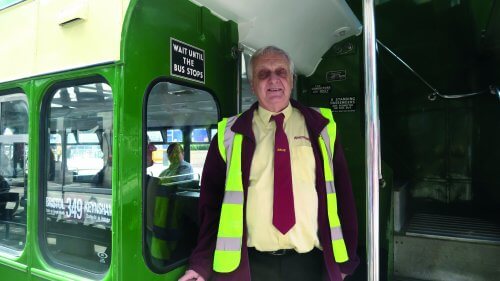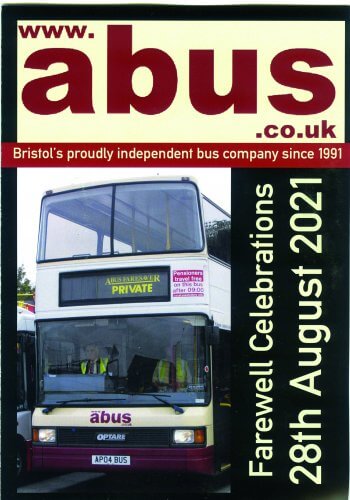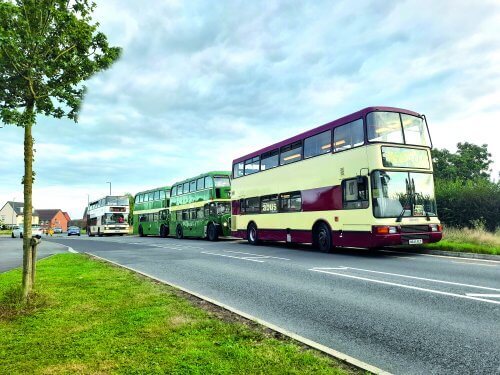Bristol’s last family-owned bus operator ended operation of its service 349 on 28 August with a celebration of the last 30 years of operation
A bus operator that has been synonymous with the Bristol bus scene and the town of Keynsham for the last 30 years operated its last 349 service on Saturday 28 August.
Such was the popularity of the service that it wasn’t just enthusiasts that visited Bristol from all over the country, but local residents and friends also turned out to say a final farewell to the route, and Abus Managing Director Alan Peters.
Long time friend and former Managing Director of Bath Bus Company, Martin Curtis attended the running day and commented: “The Abus vehicles that operated on the final day were Optare Spectras AP04 BUS and YG02 FWA, East Lancs Lowlander-bodied DAF DB250LF FD02 UKR and Wrightbus Pulsar Gemini DAF DB250LF LJ04 LFK. Two Bristol LD Lodekkas from the Bristol Omnibus Vehicle Collection (of which Alan is co-owner) and Northern Counties Palatine 2-bodied DAF DB250 M645 RCP operated duplicate trips throughout the day. Despite the duplicates running all day, a great many residents, friends and enthusiasts turned out with horns sounding on the final run at 1805hrs, driven by Alan himself. Abus was very much part of the Keynsham and Brislington community and will be much missed by residents, who fear being isolated in future although First Bus plans to take over the 349.”
A booklet made for the last day gave some history on the Abus operation, whilst Alan also wrote a foreword that read: “I wish to begin with thanks to the people of Keynsham and Brislington for their support to Abus services in Bristol and beyond for the last 30 years. This support has enabled Abus to claim a world first in 1998 – the first low-floor accessible double-decker bus in service (certainly in the UK, and propbably the world). Abus went on to run 100% accessible buses on the Keynsham service over 20 years before any other operator in the area. Strong local support also enabled Abus to negotiate with Badgerline and First to be the preferred operator for passengers in the area by agreeing to an integrated service. This has successfully operated for 25 years and thanks are extended to the professional bus people who have negotiated with us to evolve agreements for passenger benefit. Similarly, thanks are also due to Ticketer for their support when Abus was one of four small local companies to debut smartcard ticket machines in the area. Abus could not have been succeeded without the friendship and support of other operators, notably Crown Coaches, Somerbus, Citistar, North Somerset Coaches, Bath Bus Company, and Carmel Bristol, lending drivers and vehicles in both directions to help our, and their, tough or busy times.”
Alan ended by summarising his reason for ending operation of the 349: “I have some regret finishing Abus operation of the 349, but factors outside my control mean now is the time to do so. Our rented depot at St. Philips has been sold for redovelopment and the forthcoming low emission zone would require investment of well over £1 million. Costs will also be increased with changes to bus service regulation in the new year and I do not believe that West of England Combined Authority (WECA), as transport authority, will be sufficiently funded to improve bus services.”





